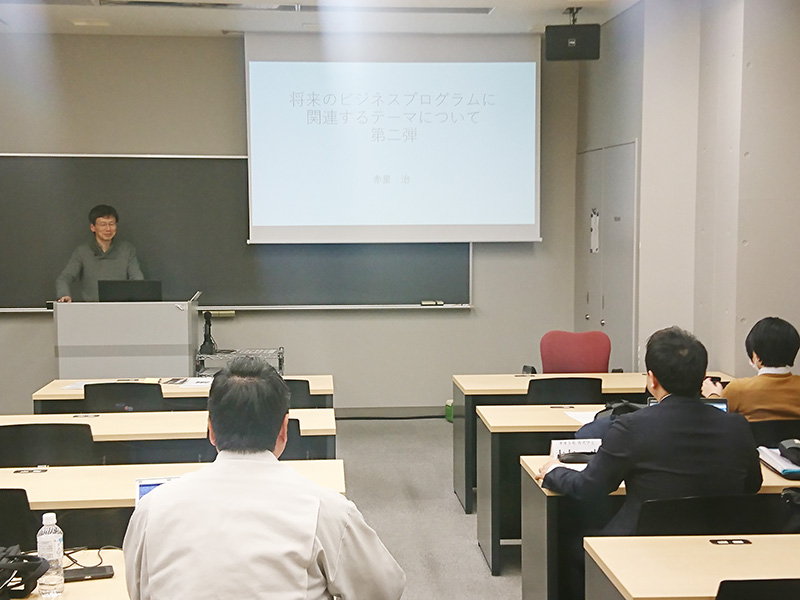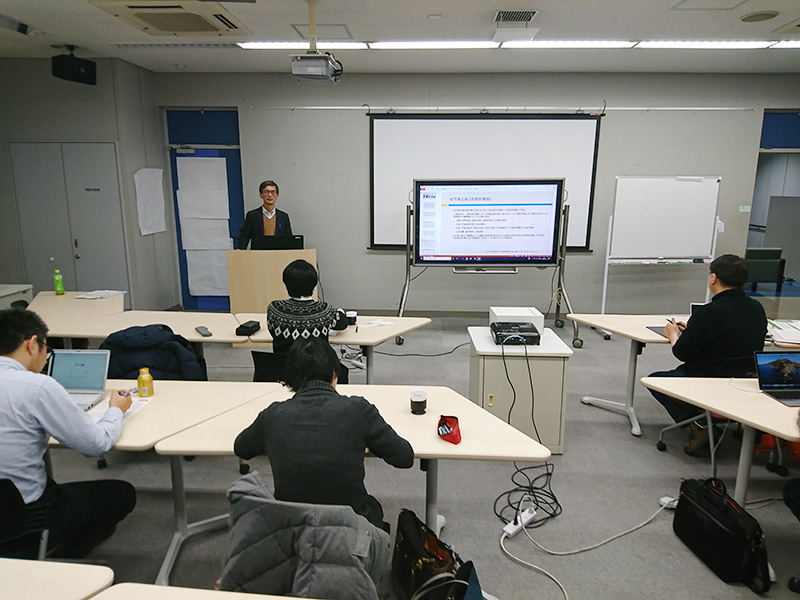NIT MOT Graduate School
NIT MOT Graduate School
Nippon Institute of Technology
Graduate School
NIT Graduate School established in 2005
2-5 Kanda-Jinbōchō, Chiyoda-ku, Tōkyō 101-0051
While the severity of the business environment is increasing, the bewildering pace of technological progress has given birth to new business opportunities to meet the needs of the market.
We therefore established the NIT Graduate School of Management of Technology (NIT MOT) in 2005, as our educational institution approached its 100th-year anniversary.
Many of our students are experienced managers at small or medium-sized businesses; their strong motivation and the practical studies offered through the systematic technology-management program have impressed businesspeople from major companies and government agencies as well.
The NIT Graduate School is a comprehensive base of support for the education, research, and management of small and medium-sized businesses.
Message from the President

President Sadao Takeuchi
Supporting the dreams of the 21st century
The NIT Graduate School of Management of Technology (NIT MOT) has produced a great number of technology managers since being established in 2005. Founded in an effort to cultivate the technology managers needed by Japan’s small and medium-sized businesses at the time, the graduate school has left its mark on both this educational institution and the development of human resources for the industries of Japan through mutual enlightenment resulting from the wealth of expertise its instructors bring and the challenging spirit of its graduate students.
Graduates of the course have praised the tremendous value of the one-year program in which individuals working in company management confront the problems faced in those positions, reexamining them from a variety of viewpoints and technology-management methodologies to arrive at resolutions.
Technology management tailored for small and medium-sized businesses is one of the unique features of NIT MOT. Through its university and graduate school, NIT has striven to educate pragmatic engineers. From the perspective of technology management, however, there was much left to be desired. NIT MOT fills this gap by teaching people how to present superior technologies and products to the world. The twenty-first century is an era of diversification. NIT MOT will continue to break from the mass production and consumption of the 20th century and to manifest the power of creating new value.
NIT Graduate School Characteristics
A one-year graduate system that enables working adults to pursue their studies
MOT is the only program in the country that trains technology managers for small and medium-sized businesses
While around 30 graduate students enroll each year, not all of them are from small and medium-sized businesses—some work at major companies. But this diversity generates mutual motivation among the students and leads them to new perspectives and awareness. The professors leading the studies are well-versed in practical business matters, so they provide information that is useful for business in the real world.
With over eleven full-time professors, there is a favorable student-teacher ratio of two or three students per instructor.
To allow students to obtain their master’s degrees while working, there is a lot packed into their time at the school, including deep discussions and case studies in class as well as seminars involving the study of specific issues. Classmates become kindred spirits, forming a network that will be a valuable resource for each student’s future career.
Students can even study at MOT for up to five years. The acquisition of knowledge has no end point. Join us as we travel down the road of enjoyable learning.




Educational Goals of the NIT Graduate School
Our goal at the NIT Graduate School is to contribute to Japan’s tech industry by providing practical education in technology management to the essential employees of small and medium-sized technology companies at the core of the industry; to sufficiently reinforce their ability to strategically manage, propose plans, and solve problems; and to strengthen the technology-management capabilities of companies.